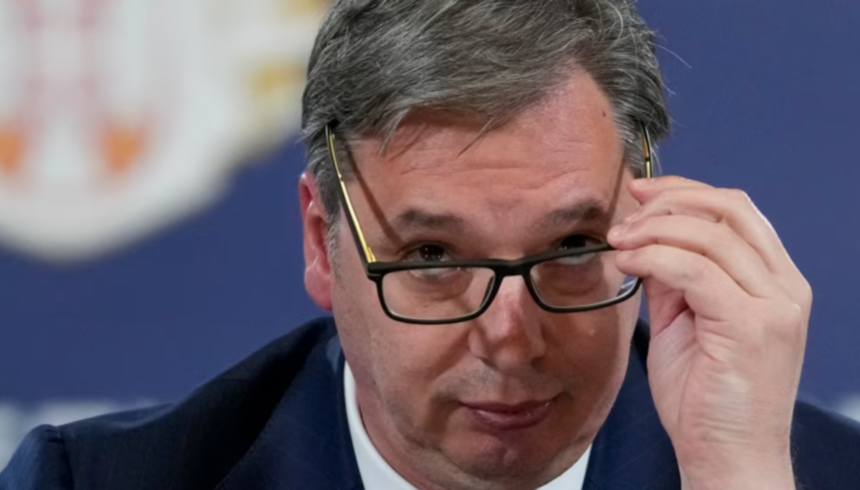The elevation of Radoičić as a “freedom fighter,” the glorification of the Banjska terrorists as “guardians of the homeland,” and the declaration of Kosovo as being “under total occupation” have been an open invitation for the sabotage of the Ibër-Lepenc Canal. This is why, although we do not yet know the author of the attack on the Ibër-Lepenc Canal, Vučić bears full responsibility for the environment he has created. Philip Reeker, a former senior official at the U.S. State Department, stated this week that the Balkans are no longer a priority and that too much time has already been spent on our region. This articulation of Reeker reflects what Western diplomats have privately been saying for some time.
Reeker’s statement does not come as a surprise in our region. The consequences of the West’s lack of attention to the Balkans have already started to manifest. The entire region has stagnated in its European integration process, while the West has replaced calls for reforms and progress with demands for peace and stability. Regional leaders have seen this as an opportunity to usurp power. Nowhere is this more evident than in the largest country in the region: Serbia.
In Serbia, Vučić has dismantled the opposition, placed every state institution under his control, particularly the security sector, monopolized almost the entire media scene, and turned Serbia’s state budget into the portfolio of his party.
The absence of Western attention has also had repercussions on the Kosovo-Serbia dialogue. After more than ten years, the dialogue has failed to normalize relations between the two countries. This abnormality in relations was dramatically highlighted this week with the explosion on the Ibër-Lepenc Canal. And although much is still unknown about the incident, one thing is clear: this was a terrorist attack. According to the EU’s definition, any act that “creates serious concern among citizens or seriously destabilizes or destroys the political, constitutional, economic, or social foundations of a country” is considered a terrorist act.
In this context, the attack on Ibër-Lepenc met the criteria of a “terrorist act.” Its calculated targeting aimed to disrupt the water and electricity supply to much of Kosovo, thereby causing “serious destabilization of the economic or social foundations” of Kosovo and “creating serious concern” among the citizens. This was also why the EU quickly categorized the attack as a “terrorist attack.”
Now, we are left to understand the second part of the puzzle: Who did it? Unfortunately, I fear we may never fully understand. Acts like these are designed and executed with such attention and skill that they make it extremely difficult to uncover the perpetrators. But beyond the names of the perpetrators, one thing is clear: Vučić has created a political and security environment that encourages and supports acts like this. He has elevated Radoičić as a “freedom fighter” and referred to the terrorists in Banjska as “guardians of the homeland.” He has declared Kosovo to be “under total occupation,” denigrated Kosovar officials as “Nazi collaborators,” compared Kurti to Hitler, and warned that “things never end well for the occupier.” Furthermore, he has called for “resistance,” warned the West that “we will wait for the right moment and seize our opportunity,” threatened the West with “consequences you have not yet seen,” and stated that “there will be more conflict.”
Adding to this his stubbornly close relations with Russia and its security apparatus, Vučić’s responsibility for what happened in Ibër-Lepenc becomes even clearer. It has been him personally who has followed an adversarial policy toward Kosovo, which in recent times has seen the kidnapping of three Kosovar policemen, attacks on KFOR, attacks on Banjska, the killing of Agim Bunjaku, and grenade assaults on various locations in the north. Therefore, through his nationalist discourse, his hostile actions, and his malignant relationship with Russia, Vučić has created a dangerous security environment in the north of the country. This is the reason why today, even though we do not know the author of the attack on the Ibër-Lepenc Canal, Vučić bears full responsibility for the environment he has created.







